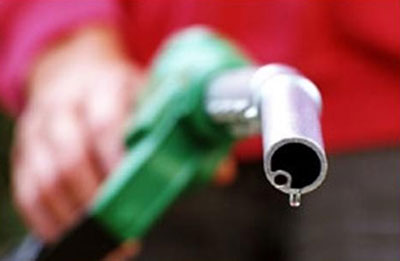
Oil below $90 to hit GCC economies
Dubai, March 4, 2014
The effects on the economies of Gulf countries would be negative to neutral under an adverse scenario in which oil prices decline to $90 per barrel (pb) by 2020, said a report.
A gentle decline in oil prices should enable most GCC countries to continue to record healthy macroeconomic growth rates and support expansionary fiscal policies, stated Moody's Investors Service in a special comment report.
However, given that some GCC countries are already experiencing fiscal pressures in the current stable oil price environment, the ratings agency has considered the likely implications of a more adverse scenario in which oil prices would decline to $90 per barrel (pb) by 2020.
Such a protracted oil price decline would have negative credit implications for some countries of the GCC, it stated.
The economies of Bahrain (Baa2 negative) and Oman (A1 stable), including their corporate and banking sectors, would be hardest hit, while those of Saudi Arabia (Aa3 stable) and the UAE (Aa2 stable) would face a mixed outlook.
However, Kuwait (Aa2 stable) and Qatar (Aa2 stable) would be largely unaffected, said the Moody's in its report..
The rating agency said the likely implications of the adverse scenario were being studied as a number of GCC countries were already experiencing fiscal pressures in the current stable oil price environment.
Moody's adverse scenario is based on the expectation of greater-than-expected new global oil and gas capacity on the supply side; and slower-than-expected commodity demand growth in emerging markets, largely due to the maturing Chinese economy.
"Under such a scenario, sovereign credit quality in the GCC would be affected to varying degrees, with Bahrain and Oman most vulnerable to a potential downward adjustment of their sovereign ratings, given their high fiscal breakeven prices and declining oil production," explained Thomas J. Byrne, a Moody's senior VP and co-author of the report.
"The UAE and Saudi Arabia would, despite their large non-oil sectors relative to GCC peers, face reduced fiscal flexibility. Kuwait and Qatar on the other hand have the most headroom and fiscal flexibility to withstand a protracted oil price decline," stated Byrne.
Moody's anticipates that the policy responses of the affected GCC governments are likely to include continued efforts to diversify the economies away from hydrocarbons and to step up fiscal consolidation, which would have negative implications for corporates and banks.
In terms of the impact of a protracted oil price decline on GCC corporates, Moody's believes they are vulnerable to weakening public finances because the respective governments play such a dominant role in their economies.
This would likely result in major parts of these economies – with exceptions such as utilities – undergoing significant adjustments.
It would also result in a reduced availability of subsidies, such as cheap access to feedstock, funding at preferential conditions through local banking channels, and government support, said the ratings agency.
"A sustained oil price decline would likely result in significant adjustments to major parts of these economies, with some exceptions such as utilities. It would also reduce the availability of subsidies, such as cheap access to feedstock; funding at preferential conditions through the local banking channels; and government support," remarked Martin Kohlhase, a Moody's senior analyst and co-author of the report.
Furthermore, Moody's anticipates that a protracted oil price decline would adversely affect the GCC banks, as they are closely intertwined with local governments, which are often their largest borrower, depositor and shareholder.
"A drop in oil prices would result in lower government deposits and weaker asset quality, which would in turn hit banks' profitability and their ability to generate capital, stated Khalid Howladar, Moody's senior credit officer and co-author of the report.
"Any deterioration of sovereign credit quality would also affect that of the local banks given their exposure to the public sector," he added.-TradeArabia News Service







